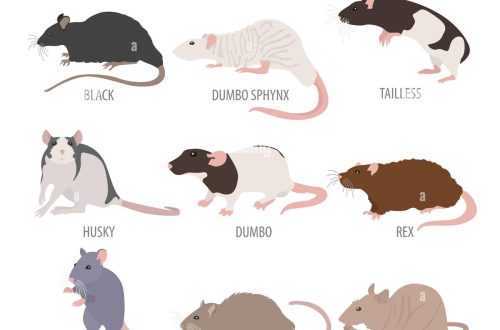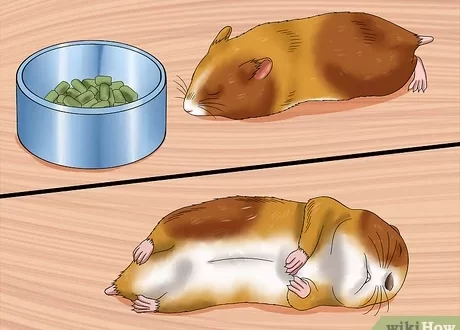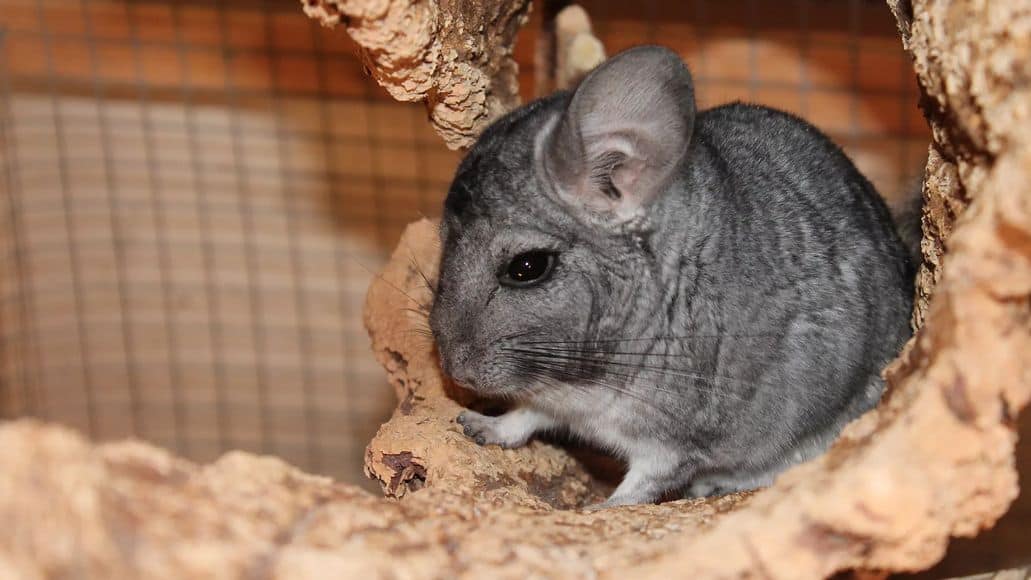
Behavior and character of chinchillas at home
It would be reckless to call the character of chinchillas simple: these animals have a rich set of reactions and a whole palette of sound signals. These animals feel like royalty and require an appropriate attitude.
Contents
Are chinchillas smart?
It is important to understand by what criteria one can evaluate the mind of an animal. When it comes to training, then a chinchilla cannot be put on a par with a rat: shisha hardly learn commands. The chinchilla is not always human-oriented, and is quite reconciled with his absence, if there are relatives. However, to call an animal that has such an arsenal of interpersonal relationships stupid would be blasphemy.
A flock of animals has a clear hierarchy. In addition, they have a matriarchy – smart females dominate the community. The language of rodents is so rich that the following sounds can be distinguished:
- connections – soft grumbling when communicating with fellow tribesmen;
- call – a jerky sound when the animal is looking for someone;
- mating – the sounds of a male calling a female: a squeak of resentment or gentle notes;
- satisfaction – hiccupping sounds of the male after mating;
- cub – high-pitched sounds, demanding when the baby is hungry and joyful if he has eaten;
- infringement of rights – a plaintive signal when a chinchilla is constrained by relatives;
- protest – the sound of irritation;
- defense – a croaking jerky sound;
- rage – a grinding sound, in a female it may be accompanied by “shooting” urine;
- family quarrel – the grunting sounds of the male and the sharp rattle of the female;
- danger warnings – expressive quacking;
- pain or extreme situation – a sharp cry.
Chinchilla cubs are more talkative, their chatter is constantly heard.
Features of the character of the chinchilla
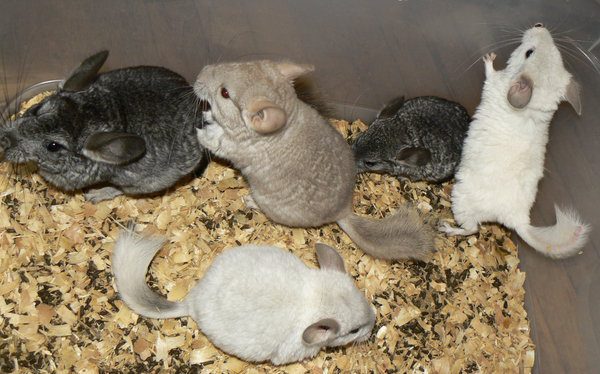
Chinchillas have a different character: there are cute, tame animals and, conversely, incredulous paranoids. Such rodents are typical inhabitants of chinchilla farms, where animals are mistreated. This must be taken into account when buying an animal. It is best to take the animal from a breeder who cherished and cherished his animals. Try to come to his house and look at the seller’s pets. Some animals never become tame.
The habits of chinchillas of different sexes
The dominant females in the pack are more powerful. This also manifests itself in the relationship with the person. Ladies are less tame, although you can “negotiate” with them. Females have another unpleasant feature – the ability to shoot urine at the object of irritation.
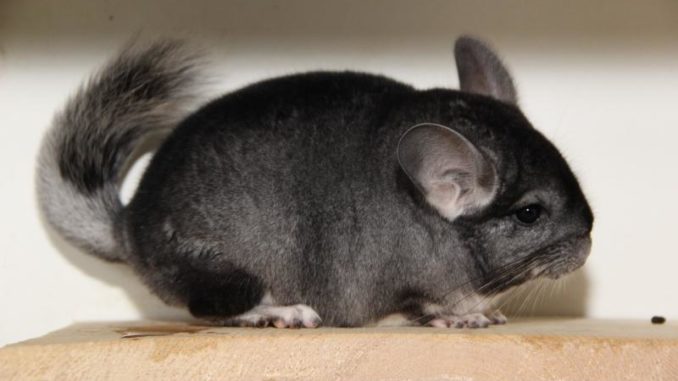
Males are calmer and easier to make contact. Their subordinate position in the pack determines a more peaceful disposition. And they don’t know how to shoot. However, this does not mean that the male is absolutely harmless: severe pain or panic can be a reason for a bite.
What is the character of a chinchilla
Shushiki are gentle creatures, but rather wayward. Unlike rats, they do not have the same devotion and adoration for their owner, but with good relationships they get bored and demand the attention of the owner. A group of chinchillas, unlike rats, are more likely to socialize in their community without needing human contact.
In the nature of the animal there is that trepidation that does not allow a rude attitude. You can’t take a chinchilla by the tail, let alone pick it up: you can lose its trust for a long time. As a person of royal blood, she requires a respectful attitude: if taken in your arms, then only with her consent. It is enough to stretch out your hand, and the animal will go or not, decides for itself.
Chinchilla behavior at home
The behavior of the animal is associated not only with the origin, but also with the conditions of detention. It is necessary to provide a spacious cage, quality food and sufficient leisure. The first 2-3 days the animal cannot be touched, it must get used to a new place. After a period of adaptation, it is necessary to begin to establish contact. You can use only affection and goodies.
You can not touch the animal with your hands – this is stress for him.
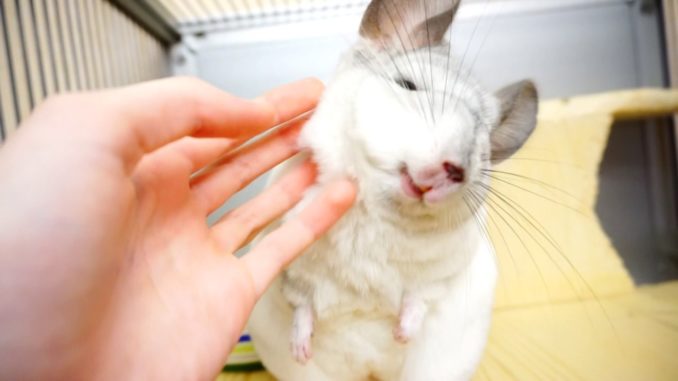
If the credit of trust is obtained, the chinchilla itself will begin to show signs of attention. It is better to observe the behavior of the animal in the house. An awake chinchilla is constantly on the move, active and playful. This pet is not for cuddling. It will not be suitable as a living toy for a child, but a young naturalist will enjoy learning habits. Be prepared for nighttime noise from jumping and rearranging “furniture” and throwing hay.
If the chinchilla behaves aggressively
Chinchilla aggression is almost always associated with fear, pain, or negative experiences. In nature, these animals are potential prey, so they are used to reacting suspiciously to any changes.
Important! Chinchillas should not be covered with the palm of your hand, as a falling shadow is associated with a bird of prey.
Animals rarely bite and before that they repeatedly “warn”. The female chinchilla becomes angry during pregnancy and after the appearance of the cubs.
Biting is not an act of aggression, but a way of communicating. A real bite to the blood should alert. If the chinchilla has become aggressive, it means that some changes have taken place in her life. A change of scenery can turn an affectionate animal into a defensive savage. Maturing males dominate with bites, including “trying the tooth” of the host. In this case, it is necessary to carefully stop the actions of the pet, pushing the overplayed beast.
Important! The male should see not a withdrawn hand, but a gesture of a self-confident person.
Why does a chinchilla wag its tail
Usually the male chinchilla wags his tail, caring for the female. This is typical sexual behavior. Regardless of whether the girl is near or not, the male furiously sweeps the floor. If the male is alone, he can wag his tail, greeting the mistress, making attempts to mate with her hand. Sometimes mating games do not go according to the plan of the male, the beloved begins to chase him around the cage, accompanying the chase with a furious wagging of the tail.
In everyday life, a lonely male, and sometimes a female, connects her tail to enhance emotions. The animal demands or asks for something.
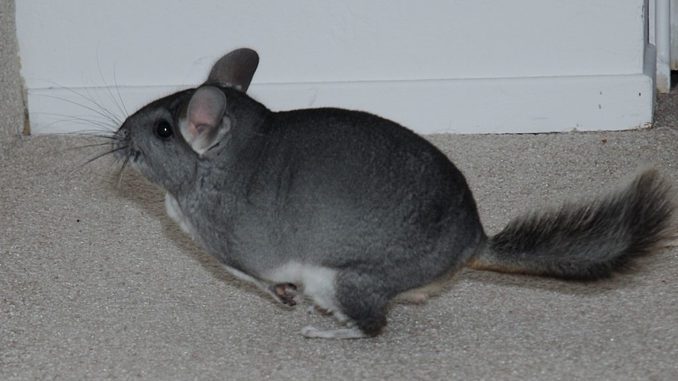
It is impossible to question the intelligence of chinchillas, although they are not very trainable. Pets are inquisitive and gentle with a good owner.
Video: habits and character of chinchillas
Features of the behavior and character of domestic chinchillas
3.5 (70.7%) 43 votes



